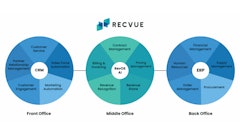
Editors Note: The following article is brought to you by Comarch in partnership with the Supply Chain Network.
The widespread use of digital technology among consumers has led to the diversification of sales channels (i.e. B2B e-commerce and mobile). This consequently has increased competitiveness and raised expectations about the availability and price of products, as well as the quality of service. As a result, many manufacturing companies in various industries are outsourcing their own logistics operations to business partners. They choose logistics service providers, concentrating their efforts on satisfying the rising expectations of their clients.
Today, a large group of logistics operators are ready for electronic communications with customers who have recently invested resources in implementing modern IT systems that streamline processes within their organization and enable electronic communications with their business partners.
This means that companies have already started exchanging electronic data with logistics operators, obtaining significant benefits such as:
- Process optimization through faster data flow
- Enhancement of supply chain management
- Significant improvement in data quality
- Easier resolution of misunderstandings
- Reduction of human work
- Improvement of partnership relationships
Of course, the market is competitive and logistics operators compete with each other by matching their offers to individual customer requirements. Therefore, many companies change their logistics when their current contracts expire and they receive an offer of better terms.
But there are a few problems with that approach.
The implementation of full process automation often involves several weeks of work for a business and IT to integrate their systems with the logistics solution in terms of communication protocols, interfaces and message types. As a result, a manufacturer who uses several logistics service providers is forced to maintain many dedicated solutions to manage the exchange of data. Needless to say, switching operators is associated with significant costs.
In addition, most manufacturers have been using EDI providers for electronic communications with their business partners for many years as part of their procurement and invoicing processes. The difference in regard to e-collaboration with logistics providers is that manufacturers do not use a single EDI platform to communicate with them like they do with business partners (e.g. retail networks). An EDI provider offers several managed services, which are further described here.
Given the trends in supply chain operations, one should consider the value of using the services of EDI providers to communicate with logistics operators too. This would allow:
1. Commercial documents to be linked to logistics documents.
Greater efficiency, with data already supplied in some documents being used automatically in others. In addition, companies can generate a logistics label with SSCC number for the appropriate logistics unit immediately, which will greatly shorten the collection time.
2. A comprehensive solution for communication with trading partners and logistics operators.
Having a single EDI provider for electronic communication with trading partners and logistics operators would greatly optimize processes, speed up access to data and enhance the decision-making process.
3. Greater flexibility.
Following an organization’s initial integration, it is the responsibility of the EDI provider to analyze and execute further integration with each logistics operator.
4. One support point.
Having a single system for exchanging logistics and commercial data means faster problem resolution and a clear responsibility for exchanging data.
5. Traceability.
European Commission regulations do or will impose an obligation on companies in various industries to better monitor the movement of goods. Using one communication tool will certainly make it easier to meet such obligations.
6. The payment process to be streamlined.
EDI providers offer the ability to finance invoices in cooperation with banks without having to fill out additional applications. For both manufacturers and logistics operators, this means that they can receive payments faster.
In conclusion, cooperation between manufacturers, retail chains, logistics operators and EDI providers can contribute to increasing the efficiency of business operations. This has been confirmed by the Comarch B2B network’s projects.














![Pros To Know 2026 [color]](https://img.sdcexec.com/mindful/acbm/workspaces/default/uploads/2025/08/prostoknow-2026-color.mduFvhpgMk.png?ar=16%3A9&auto=format%2Ccompress&bg=fff&fill-color=fff&fit=fill&h=135&q=70&w=240)




